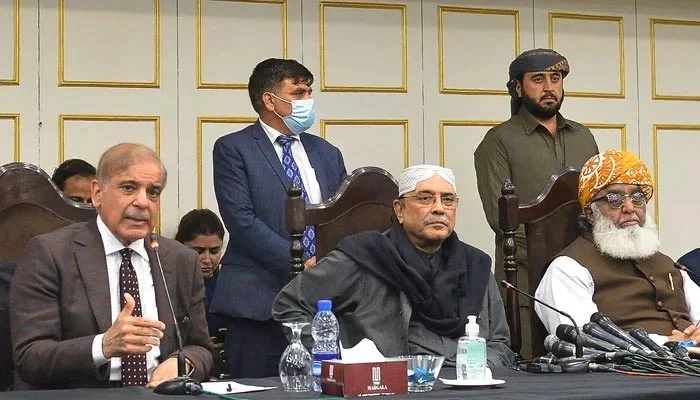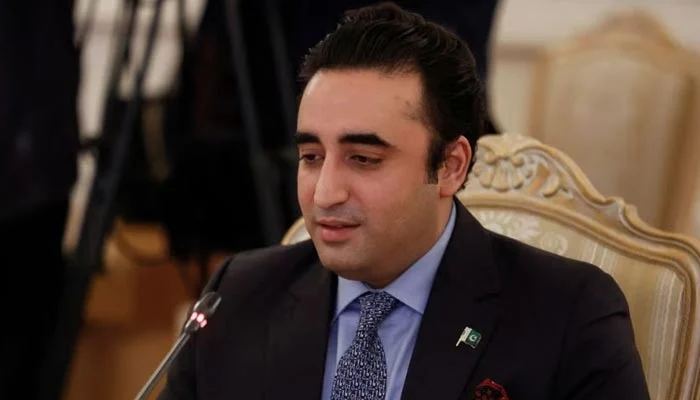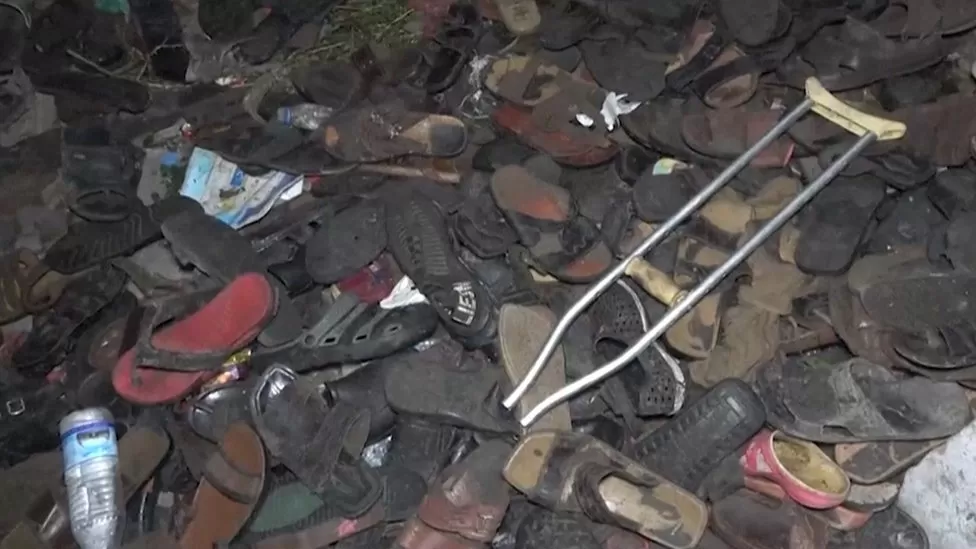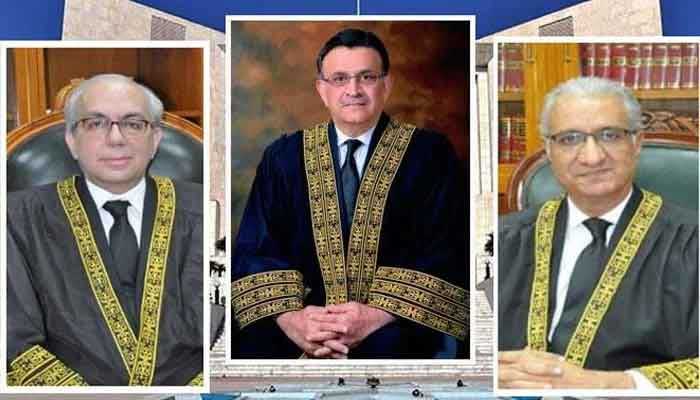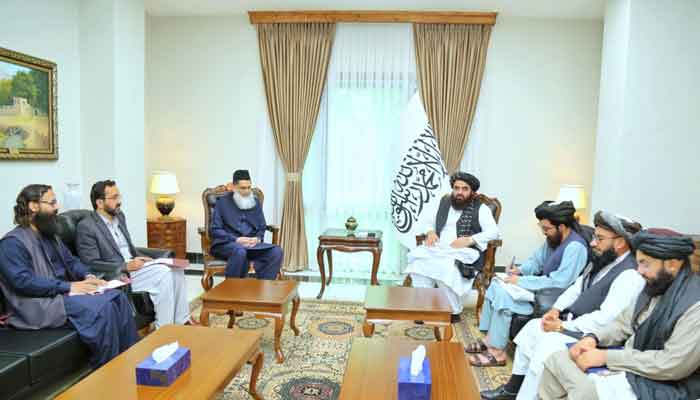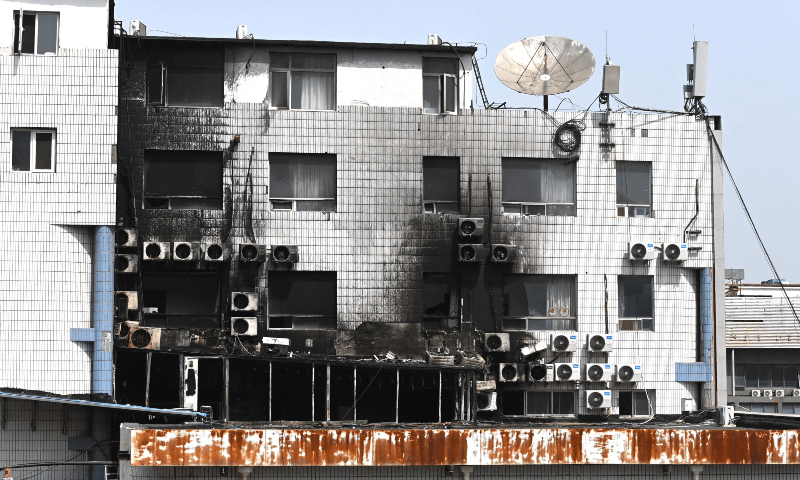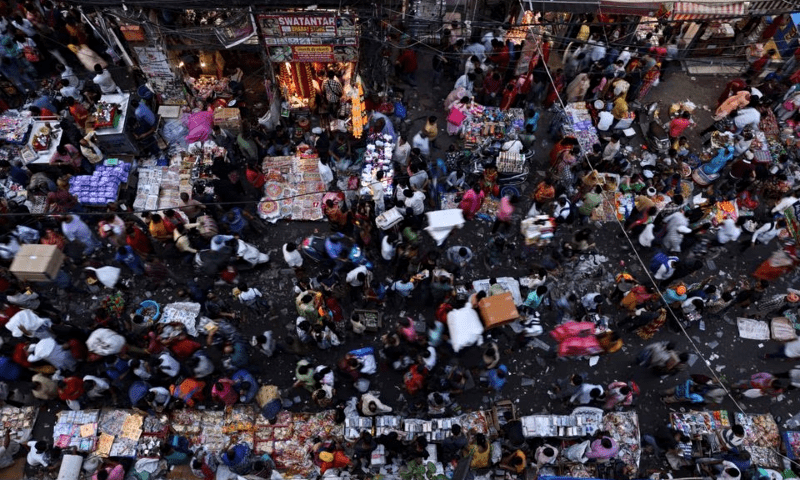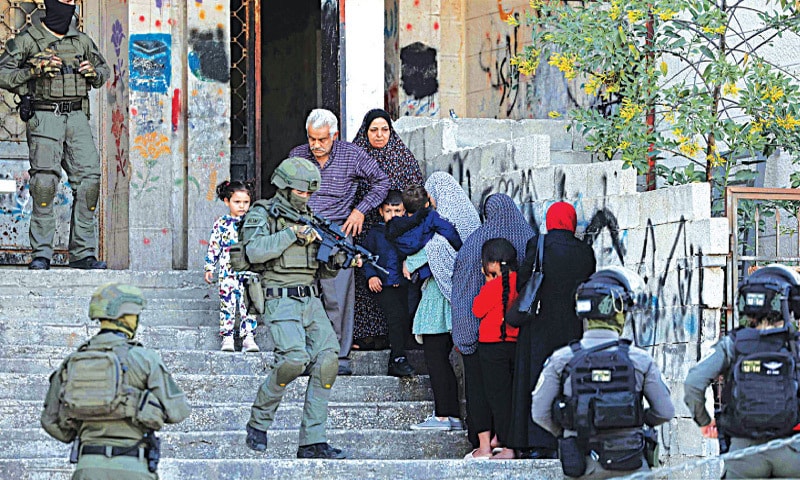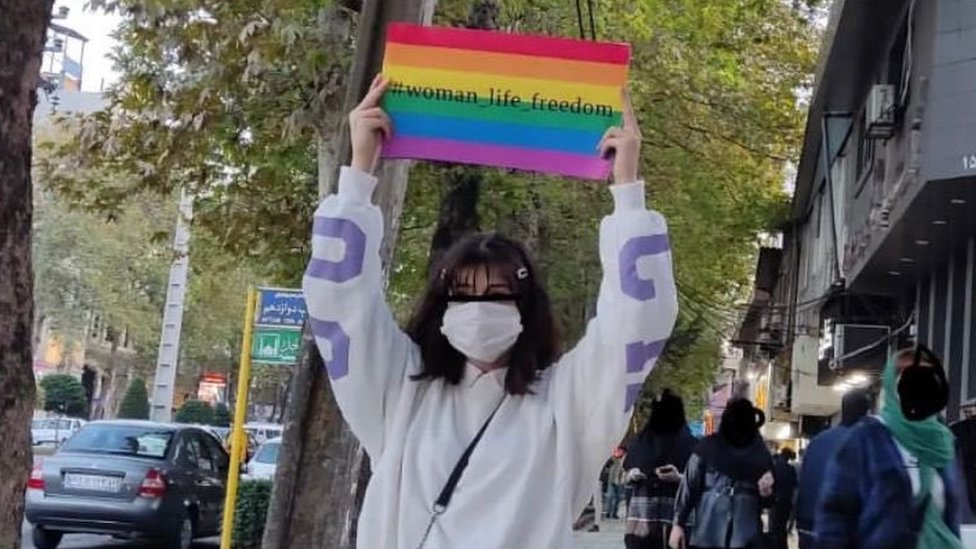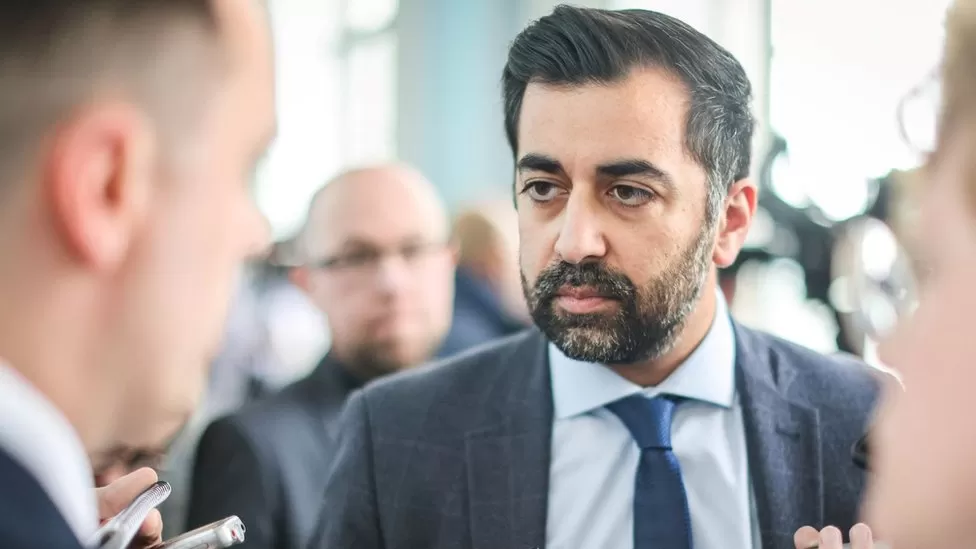ISLAMABAD: A day after getting a briefing from military officials, Chief Justice of Pakistan Umar Ata Bandial remarked on Wednesday that the Supreme Court had now given a verdict on the Punjab polls and cannot go back on it and the time is to “move on”.
A day earlier, top intelligence officials briefed the apex court on the security situation. Referring to that briefing, CJP Bandial noted that the director general miltary operations briefed the bench while director general Inter-Services Intelligence (ISI) and defence secretary were also present.
“[While] the briefing of the military authorities was very impressive and shed light on the actual situation [but] when the case was being heard, no one came to give us a briefing. A briefing was given [only] after the Supreme Court had announced its verdict. Now the decision, has been announced, we cannot go back. Now, we must move forward,” CJP Bandial said.
The CJP passed the remark while hearing three pleas seeking elections for all assemblies on the same date. He was heading a three-member bench, also comprising Justice Ijaz Ul Ahsan and Justice Munib Akhtar.
It is the same bench that announced the April 4 verdict directing the government and the Election Commission of Pakistan (ECP) to hold snap polls in Punjab next month.
On Tuesday, the Ministry of Defence moved the top court seeking elections across the country on the same date and requested the court to withdraw its order directing Punjab polls on May 14.
However, today two more pleas were filed in the apex court seeking polls across the country simultaneously.
One of the pleas was filed by a citizen Mohammad Arif, while the other one was registered by Advocate Shah Khawar on Sardar Kashif Khan’s behalf.
Subsequently, the court decided to hear the three pleas together.
Today’s hearing
CJP Bandial began today’s hearing with the recitation of a verse from the Quran and prayed that the bench gives the “right verdict”.
“The matter is getting extended. Did the government give the job of the executive to the Parliament or not?” CJP Bandial asked Attorney General for Pakistan (AGP) Mansoor Usman Awan. He also directed the AGP to read the report submitted by the Ministry of Finance.
Justice Akhtar wondered whether the government has ever failed to secure the Parliament’s approval on a supplementary grant.
The AGP told the bench that in 2013, deduction motions were approved. He then added that in the current scenario, there was time to seek approval for the issuance of the funds.
At this, Justice Akhtar told the AGP that the finance ministry has repeatedly said the approval for the supplementary grant is taken later. He added that the finance ministry had cited Article 84 of the Constitution.
AGP Awan informed the judge that the National Assembly had passed a resolution against releasing the funds.
“Are you saying your case is that the government is serious about executing its responsibilities but the parliament has forbidden it?” asked Justice Akhtar. He added that the prime minister had to take the majority of the Parliament into confidence for the approval of the funds for the elections.
“If the funds are not provided for the elections, there may be serious consequences,” warned CJP Bandial on this point. He also hoped that the government would respond positively to the provision of funds for the constitutional process.
The CJP then stated that the bench was briefed on the security situation and wondered why the ECP believes that the situation is much worse than in the past.
“In the past elections were held during terrorism. Elections were also held in the year that Mohtarma Benazir Bhutto was martyred,” said CJP Bandial.
At this point, Justice Akhtar remarked that the prime minister needs to have the support of the majority of the assembly.
“Attorney general, please try to understand the situation is very serious,” he added.
The CJP then told the AGP that he has understood the point of view of the bench, adding that before this, there is no example of sending administrative affairs to the Parliament.
“Election expenses are necessary, not insignificant,” remarked CJP Bandial.
“Who will give the guarantee that the situation will be peaceful on October 8? The Ministry of Defence’s response is not satisfactory,” remarked CJP Bandial.
The top judge also questioned the ECP’s stance on elections and stated that it is leading to multiple questions.
“The basis of the Election Commission’s observation is non-provision of security [but] terrorism has been present since 1992,” remarked CJP Bandial. He added that polls were held in 1987, 1991, 2002, 2008, 2013 and 2018.
“What is the unique danger this time that elections cannot be held?” asked CJP Bandial.
AGP Awan told the bench that last time, all the security forces had performed their duties together but now elections will be held separately in two provinces.
“The defence ministry has also made a guess. The government cannot just run on guesses,” remarked CJP Bandial.
Meanwhile, Justice Ahsan observed that polls were held on time in the United Kingdom despite the country being in a virtual war. He also wondered whether the Constitution mandates that polls be held a year after the dissolution of the assembly.
The AGP responded that all-out efforts were being made so that the specified targets were met during security operations. He added that no one expected that the assemblies would be dissolved before the completion of their tenure.
Justice Akhtar responded that the assembly was dissolved last year and had the court not taken notice, the lower house would not have been restored.
While Justice Ahsan interjected and asked which article gave the court the right to delay elections till next year. He added that the ECP had asked for funds and security for holding elections.
While CJP Bandial stated that hearings in the case began on March 27 and since then, there has been “confusion in mathematics”.
He added that the ratio of the verdict was debated but the Supreme Court was never informed about all the reasons that led to the delay in polls.
Justice Ahsan then noted that the orders related to funds were being “sent from one institution to another.”
To this, the AGP replied: “I understand the message you are trying to convey.”
Justice Ahsan the asked if there was any guarantee that the elections would be conducted on October 8.
The AGP replied that the army has started the operations so that the elections are held as per schedule.
In response Justice Akhtar inquired why the federal government was not using the authority of Article 245.
“Is the constitution not supreme?” He asked.
He then lauded that the armed forces for having sacrificed their lives for the country, adding that everyone should be grateful to the Pakistan Army.
Defence ministry’s petition
The ministry’s view is in line with the federal government’s stance, which has persistently opposed holding separate general elections in Punjab and Khyber Pakhtunkhwa (KP).
The tenure of the National Assembly and the legislature of two other provinces — Sindh and Balochistan — will end later this year and the federal government wants the polls to take place then, not in May, as directed by the Supreme Court on April 4.
“…the instant application may be granted, the order dated 04-04-2023 passed in C.P. No. 5/2023 may kindly be recalled with the directions that the general elections to the National and all Provincial Assemblies be held together, upon completion of the term of the National and the other two Provincial Assemblies i.e. of Sindh and Balochistan,” the ministry’s plea stated.
Background
In the April 4 order, the top court ruled that the ECP’s decision to postpone polls of the Punjab Assembly till October 8 was “unconstitutional” and fixed May 14 as the date for polls in Punjab.
“The impugned order dated 22.03.2023 made by the Election Commission of Pakistan is declared to be unconstitutional, without lawful authority or jurisdiction, void ab-initio, of no legal effect and is hereby quashed,” the ruling said. “Neither the Constitution nor the law empowers the Commission to extend the date of elections beyond the 90 days period as provided in Article 224(2) of the Constitution.”
But despite the court’s orders, the government did not budge and got a resolution passed through parliament against the verdict, clearly stating that it would not provide funds to the ECP for polls.
Following the government’s move, the apex court directed the State Bank of Pakistan (SBP) to release a total of Rs21 billion to the election commission for holding polls, but even after the deadline passed on April 17, the central bank did not release the funds.
In a session of the National Assembly’s Standing Committee on Finance and Revenue on Monday, SBP Acting Governor Sima Kamil said the central bank had allocated funds — on the SC’s orders — for the polls but lacked the authority to release them.
Furthermore, in a report filed in the top court on Tuesday, the ECP said the conduct of the election on May 14 is getting impossible due to the non-provision of funds and security forces for maintaining law and order.
The PTI had dissolved both assemblies in January in a bid to force the government into holding elections across the board, but the Shehbaz-led administration did not give in to the demand.
With both sides at an impasse, Jamaat-e-Islami approached them with a proposal for talks, and the PTI formed a three-member committee to negotiate with the government. However, there is a divide among the ruling allies on holding talks with the opposition.


